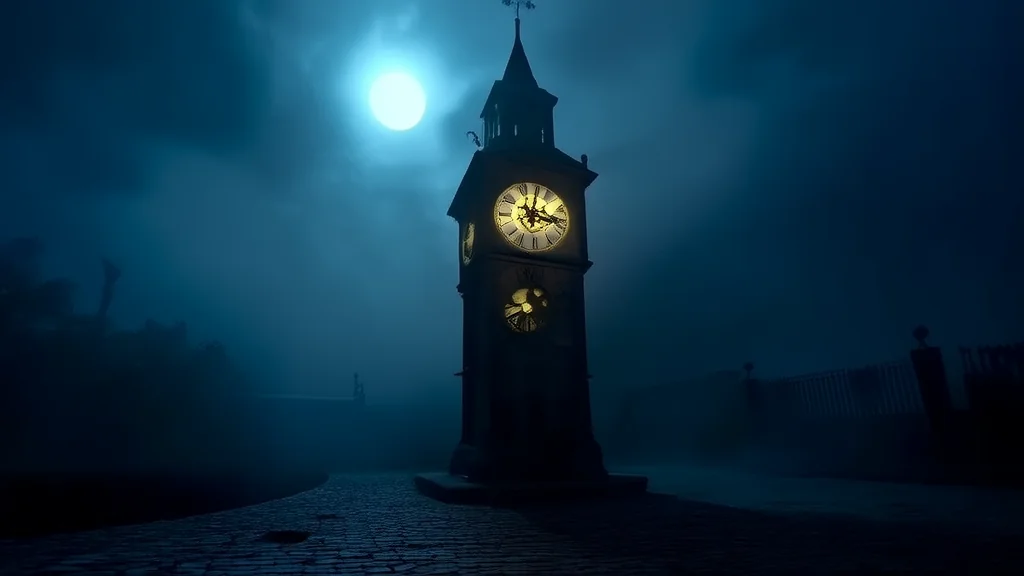🔮 Weird Tales & Urban Legends
The Clock's Whisper: When the Tower Ticked Again at 11:57 PM

Every evening at exactly 11:57 PM, the old clock tower in the center of the town would begin to tick. Not with its usual rhythm, but with a slow, deliberate pace that made the air feel heavier. No one could explain why it started again after years of silence. The townspeople called it "The Clock's Whisper," and most avoided the square where it stood, especially after dark.
Lila had never been one for superstitions. She was a quiet woman in her late thirties, a librarian who preferred the company of books over people. But when she found herself standing in front of the clock tower one night, she couldn’t quite remember how she got there. The street was empty, the sky a deep indigo, and the wind carried a faint hum that didn’t belong to any natural source.
She approached the base of the tower, where a plaque read: “Built 1892 – Restored 1947.” There was no mention of what had happened in between. The clock face was cracked, and the hands were frozen at 11:57. As she reached out to touch the glass, the air around her shimmered, like heat rising from the pavement. A soft chime echoed through the square, and the hands of the clock began to move—slowly, as if waking from a long sleep.
Inside the tower, the walls were lined with strange symbols carved into the stone. They looked ancient, almost organic, as though they had grown rather than been etched. Lila traced one with her finger, and the moment her skin touched the surface, the temperature dropped. Her breath formed clouds in the air, and the sound of the clock ticking grew louder, more insistent.
She heard a voice then, not loud, but clear. It wasn’t speaking in any language she knew, yet she understood it. *You are not the first.* The words filled her mind, and suddenly, she saw images—people standing in the same spot, their faces blank, eyes staring at the clock. Some wept, others laughed, and some simply stood motionless, as if waiting for something to happen.
When she opened her eyes, the clock was still. The hands were back to 11:57, and the air felt normal again. But the symbols on the wall had changed. New ones had appeared, glowing faintly in the dim light. She stepped back, heart pounding, and turned to leave—but the door behind her was gone. The tower walls now stretched impossibly high, and the floor beneath her feet felt unstable, like it might crumble at any moment.
A low creaking sound came from above. Then, another chime. This time, the clock’s hands moved forward by a second. 11:58. Lila pressed her back against the wall, trying to steady her breathing. She thought of the townspeople, the way they avoided the square, the way they whispered about the clock. Was this what they feared? Or had they simply forgotten?
She tried to walk away, but the path leading out of the square had vanished. In its place was a narrow corridor, lit by flickering lights that cast long shadows on the walls. The symbols were everywhere now, shifting and twisting as if alive. She followed the corridor, her footsteps echoing in the silence. At the end, there was a door. It was wooden, old, and slightly ajar.
Inside, the room was small and circular. A single chair sat in the center, facing a mirror that reflected nothing but the ceiling. Lila hesitated, then stepped closer. As she did, the mirror showed not her reflection, but a different version of herself—older, wearier, with a look of deep sorrow in her eyes. The mirror image raised a hand and pointed to the clock tower outside.
Then, the mirror shattered.
Lila stumbled back, heart racing. The sound of the clock ticked once more, and the hands moved again—this time to 11:59. She didn’t know how long she stood there, but when she finally turned to leave, the door was open, and the square was empty. The clock tower was silent once more, its hands frozen at 11:57.
She returned to her apartment that night, unable to shake the feeling that something had changed inside her. The next morning, she found an old journal in the library, hidden behind a row of books. The pages were filled with entries written in a shaky hand, all describing the same experience she had faced. The last entry was dated the day she entered the tower.
*“It doesn’t take you,”* it read. *“It shows you. And once you see, you can never unsee.”*
That night, the clock ticked again.
发布于 en
🔗
相关站点
- AI Blog — AI 趋势与技术新闻